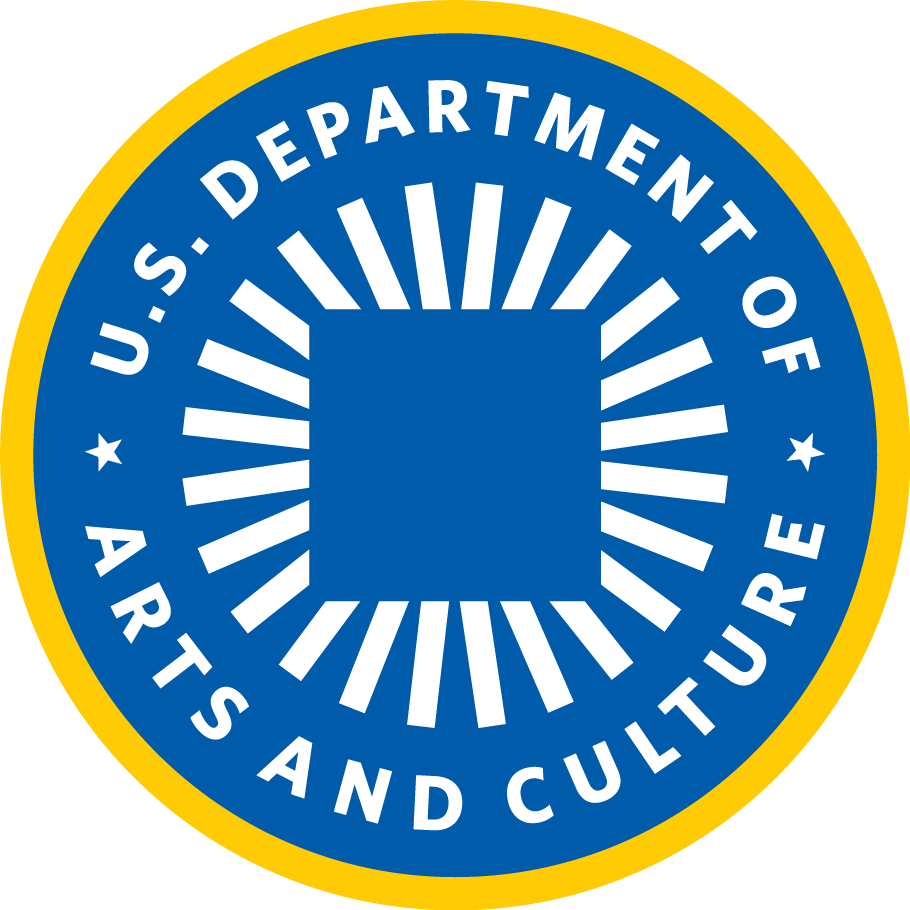The U.S. Department of Arts and Culture is a newly minted, people-powered department that invites anyone to step up as a Citizen Artist or Cultural Agent and perform creative work that advances social equity. During his indictment of the non-governmental entity, Beck enumerated the USDAC’s Statement of Values, which seemed to catch him off guard. After reading the first value –"Culture is a human right" – Beck looked befuddled. "It is?" he asked. It certainly is, at least according to the 1948 United Nations Declaration of Human Rights, which declares "Everyone has the right to freely participate in the cultural life of the community." Beck winced as he continued to recite values that apparently contradict his own: culture is created by everyone, cultural diversity is a social good, and the work of artists is a powerful resource for community well-being.
In response to the unanticipated attention, Deputy Secretary Beckett commented that the Department "thanks Mr. Beck for the opportunity to share its values with a large and very attentive national audience. Since this Department is an act of collective imagination, it's always useful to add more imagination to the mix." He added, "While we don't agree that the existence of the USDAC should make anyone want to 'pull their kids out of school' or make wildly inappropriate historical comparisons to the Nazi Germany, we do appreciate Beck's prompt to 'tell your friends' – it is indeed up to us to take a stand for cultural diversity and equity."
Calling the USDAC "America's latest propaganda machine" and mistakenly claiming that the group is trying to "erase" and "rewrite" American history, Beck then spoke with Rafael Cruz, the pastor father of Senator Ted Cruz who also lent his inadvertent support to the USDAC. Cruz claimed that answers are not going to come from the government; rather, "we need for We-the-People to be awakened to what's happening in America." Artists and cultural workers, as Beck well knows, are adept at doing just that —helping individuals and communities identify ways in which our current systems are failing, awakening imagination and creative alternatives.
The recent federal government shutdown largely provoked by the likes of Beck and his Tea Party supporters cost the nation over 24 billion dollars (more than 164 years worth of NEA funding at its current rate), but did not affect the USDAC, given that it is not an actual federal agency. Indeed, the United States has no such cabinet level position for arts and culture. "Would the government shutdown have happened if our lawmakers had grown up partaking in powerful creative experiences that bolstered social imagination, empathy, and the capacity to collaborate?" Deputy Secretary Beckett said in his statement. "When you play in a music group or perform in a piece of theater you come to know that collaboration is our most powerful tool for making worthwhile, important, and beautiful things happen. Through art we can connect, empathize, and find creative paths forward."
Deputy Secretary Beckett continued, "To accuse the USDAC of trying to erase history is to fundamentally misunderstand the Department’s stated mission. We seek the creation of a just and sustainable future, and believe this will require that we all step up as artists of society, working to expand our collective circle of care. Beck certainly got one thing right: we are trying to 'change the world.'"
Anyone interested in learning more and supporting the USDAC should go to www.usdac.us to find out more and sign up.









